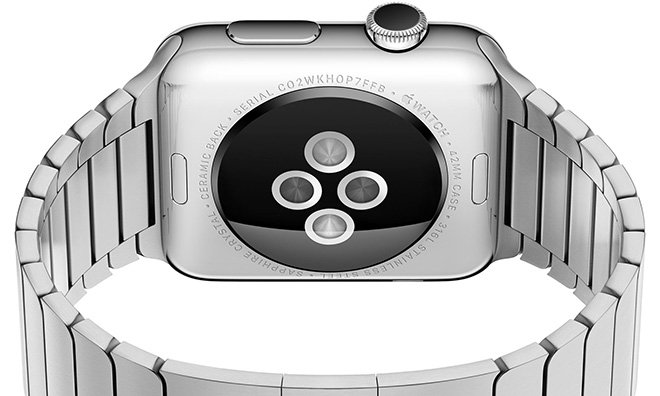Johns Hopkins University, in partnership with developer Thread Research, plans to harness Apple Watch and iPhone sensors to power an ambitious ResearchKit study on epilepsy that could one day lead to an accurate method of predicting seizures.
Seeking deeper insight into epileptic seizures and their effect on the human body, Johns Hopkins' ResearchKit study will collect heart rate sensor and accelerometer data from Watch, gyroscope data from iPhone and dynamic user feedback to track a variety of biometric measurements during a seizure episode, according to a source familiar with the project. The iPhone and Watch apps, now in beta testing, are slated to go live on Sept. 18.
While sensor readings are automated, like many current iPhone-based ResearchKit initiatives, other metrics are not so easily ascertained. Activating the test process and measuring lucidity, for example, require some form of direct user interaction, a steep demand considering the extremely stressful nature of a seizure event. To help participants complete individual sessions they are given physical cues to answer contextual onscreen survey questions via Watch's Taptic Engine. Alternatively, a caregiver might be able to initiate the testing process if present, the person said.
As with previous ResearchKit initiatives, the seizure study is to be conducted on an opt-in basis, though Johns Hopkins is hoping the proliferation of Apple's popular devices will help garner a larger test pool. Further, Apple's ResearchKit framework securely anonymizes sensitive data uploads, allaying concerns over privacy that traditionally inhibit participation.
ResearchKit was introduced in March as an iOS-based tool with which medical researchers can expand candidate pools and achieve more accurate results. One of the first integrations, a cardiovascular study conducted by Stanford University, saw more than 10,000 participants sign up less than 24 hours after its debut, a feat that would have taken a year under normal circumstances. Recent reports claim Big Pharma is also looking to apply Apple's open source framework in clinical trials and R&D underpinning for-profit operations.
As for the upcoming seizure initiative, Johns Hopkins is creating appropriate study requirements, while Thread Research handles app integration and deployment, as well as backend considerations. This is the second ResearchKit project for Thread, which in June partnered with the University of California, San Francisco to conduct a study on LGBTQ health issues.
Finally, the project's scheduled activation date of Sept. 18 might hint at Apple's watchOS 2 release plans considering the forthcoming firmware is required to access Watch sensor APIs. Apple is said to be actively involved in bringing the seizure study to market as it helps get ResearchKit off the ground, suggesting the development team has an inkling of watchOS 2 availability.
 Mikey Campbell
Mikey Campbell







-m.jpg)






 Charles Martin
Charles Martin
 Christine McKee
Christine McKee
 Wesley Hilliard
Wesley Hilliard
 Malcolm Owen
Malcolm Owen
 Andrew Orr
Andrew Orr
 William Gallagher
William Gallagher
 Sponsored Content
Sponsored Content








16 Comments
It is a good idea to use people's mobile phones to gather data for medical experiments. Compare this with Google whose first thought is gathering people's info for advertising. I read an article today (on Ars) about a group of people who are going through past scientific papers and trying to reproduce the results. About half could not be reproduced. This makes me think scientists need better data (e.g. ResearchKit) and less ego (that part is up to them).
It is more than good. It is a potential game changer in health care and medical. One of the best things Apple has brought onto the market.
This is very important to our family. My wife died suddenly, unexpectedly at age 59 of a seizure. Our daughter has had 2 seizures. The ability of doctors to remotely monitor their patients could easily be extended to allow parents to remotely monitor their children, parents and loved ones.
Interesting use for the Watch's sensor, and a great way to use the underrated ResearchKit.
Thanks to Johns Hopkins and Apple for the effort.
Now, just think if we could attach a band with blood glucose monitoring lasers. That would open a whole new door to medical research. C'mon Apple, make it happen!
[quote name="Suddenly Newton" url="/t/187921/johns-hopkins-taps-apple-watch-researchkit-for-upcoming-epilepsy-study-with-eye-on-seizure-prediction#post_2767862"]Interesting use for the Watch's sensor, and a great way to use the underrated ResearchKit. Thanks to Johns Hopkins and Apple for the effort. Now, just think if we could attach a band with [URL=http://www.gizmag.com/laser-blood-glucose-level-mesurement/33466/]blood glucose monitoring lasers[/URL]. That would open a whole new door to medical research. C'mon Apple, make it happen! [/quote] That may be coming, but it might be more appropriate for a medical equipment company to partner with Apple on something like that.